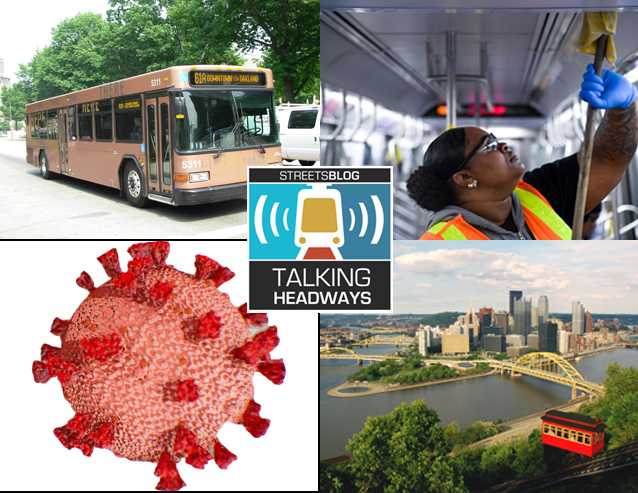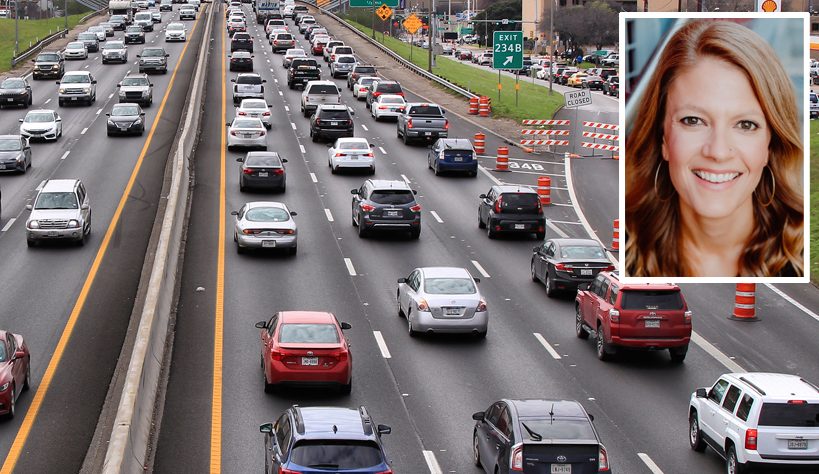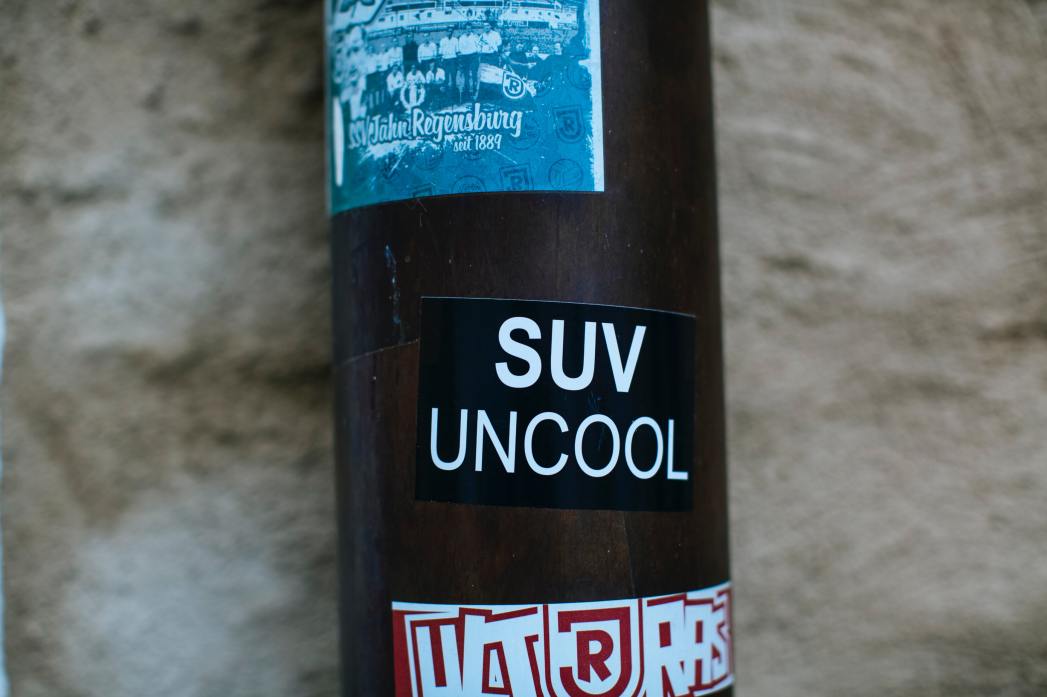This week we're joined by David Huffaker, chief development officer for the Port Authority of Allegheny County in the Pittsburgh region. Huffaker joins us to chat about transit operations during the pandemic, emergency planning, the agency's equity index, and the future of streets.
If you prefer to read rather than listen, an edited transcript is below the player. If you want the full unedited transcript (with typos!), click here.
Jeff Wood: What's been the toughest part of the pandemic from a service perspective? You talked about having to leave some folks behind because you have load limits. And obviously there's the fact that you need to keep the buses clean and have it be not just physically safe, but almost "mentally safe" to let people know that transit is actually a place where people can come.
David Huffaker: So I think there's actually three points that I would bring up. Interestingly, we've been going through some branding work here in Pittsburgh and the Port Authority buses. It probably, I dunno if it was a number one complaint, but one of the bigger complaints was that people did not sense that the buses were clean. And of course that plays into people's fears when their thinking about the pandemic and trying to figure out if it’s going to be OK for them to be on Port Authority service. And our maintenance teams have stepped up incredibly by doing extra overtime.
And we've been cleaning each bus every night in a very thorough way. And so I'm happy to say kind of an ironic side effect of this has been in our fleet has never been cleaner. And so we definitely have increased the perception of cleanliness among riders. So that's been a positive.
I think probably the biggest frustration and difficulty has been the uncertainty that this all puts into play. And, you know, you get guidance that might change over time and conditions that fluctuate and cases where actually Allegheny County was hit relatively softly at first, we were blessed to be not impacted directly in a large way at the start, while the eastern part of Pennsylvania was hit very hard. So that helped us, however, over time. And certainly as the state went to a little bit more of a relaxed return to normal operation, we saw an increase in the number of cases here in Allegheny County to the point where I think Allegheny County was probably the hottest spot in the state of Pennsylvania.
So it's difficult because you know, things are changing all the time. And if you do have a case of COVID-19 at a garage, do you need to shut down and clean the area where the employee was working? Most of our cases were actually on the maintenance side rather than operators. So there wasn't necessarily direct contact with customers, but still required cleaning in the garages themselves and making sure that employees were safe. And so each case puts into play a round of cleaning and temperature screening and that sort of thing.
And so I think just the flexibility that was necessary and required of us to respond was certainly a challenge. And then I think for us, the difficulty in particular is we're not nimble enough to respond to some of that need for flexibility the way that we would like. And so, you know, we would love to be in a position where we see a hot spot and say, "Oh, there's a lot of people riding from a particular location today, let’s get more buses there. But the schedule is based on making sure that we've got manpower and buses and maintenance people for what's essentially our baseline service.
And so we don't necessarily have the flexibility to throw a huge amount of resources when we see a hotspot or when we see an area that needs a lot of immediate service. I wish we were more nimble and able to respond in more real time to situations that arise. There are times when we can do that, but if it's at the peak, when we've got a lot of buses in service and we may not be able to throw a lot more service and a particular area that might need it. So that's been a real frustration. And, you know, we're looking at the future and how we can provide better service so that we can really restructure our service at that point.
So there's not a lot of flexibility that we can offer in the meantime.
JW: Is that something that you would focus on in the future?
DH: We would like to be able to put into play as much flexibility as possible and we're also hamstrung because our service really was operating at its peak capacity. We did not have any more buses in the peak hours and we didn't have more operators as many transit agencies across the country. We were already feeling there was a shortage of operators and while we were not in dire straits, certainly as the number of staff have had to be quarantined or have the threat of contracting the virus, we have started to see some manpower shortages that really creates some of that inability to respond immediately.
In a perfect world, we would have perfectly full operator roles and make sure that we've got all those positions filled and with trained operators. But just by virtue of retirements and illnesses, we have not been able to maintain that. So I think looking at creative ways to staff and creative ways to schedule would certainly be something that I'd love to see if we could yield some benefits in the future.
JW: I know the pandemic is something that seems like it's out of a sci-fi movie movie. It's kind of crazy. Did the agency have a plan for a massive disruption like this one? It seems like it's really hard to plan for something this big.
DH: I was pleased to see that we did have an emergency plan and actually a pandemic plan based on the Ebola outbreak a number of years ago. There actually were some protocols already in place. We did, you know, evaluate some of the risks from COVID-19, which might be different than what we saw in Ebola. We did have to tailor some of those protocols, but I was actually very impressed with the amount of planning that had already been put into place by our safety team and by our operations team, and engineering and legal, etc, to ensure that we actually had some pretty good protocols in place.





